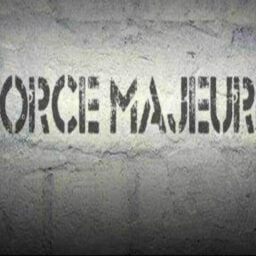
INTRODUCTION
Reading the bare act, Section 13 defines consent as the “Consensus-ad-idem” meaning the agreement of the contracting parties on the exact same offer. Also, section 14 takes consent to another height by specifying free consent.
The section has two aspects that are Consent and Will.
Although the will seems to be explicitly missing but forms the essence of consent.
The consent means in the act is the explicit response given by the individual. But the reason to give the response is manifested in the will of the individual. Claiming down the will significantly affect the consent hence the act specifically mentions that Undue Influence is one of them.
As mentioned in section 16 of the Indian Contract Act, the ambit of the Undue Influence is wide but not tending to be biased in one parties favour.
It means that the relation between the parties reflects that a level of influence exists and such relation has affected the decision so made.
Pertaining to this principle is a landmark case law that could be sighted to define the Undue Influence.
IT is an appeal case to the High Court of Judicature at Patna. In this case the verdict of the In which the court affirmed the Three stages to prove Undue Influence.
FACTS
The defendant and his father were equal owners of joint family property. But some differences arose and the father sued the son in the court of law. To pay for defending him in the suit, the defendant mortgaged his part to the plaintiff. And then for the recovery of the Amount of principal and interest, which was to be paid by the appellant to the respondent (the plaintiff) for a Mortgage. In the deed, it was explicitly written that if the respondent could pay the interest by the 30th of the month and if he fails to do so the interest would add on to and principal and the interest would be then charged on the new principal. This condition made the total payable amount Rs.112,885.
QUESTION POSED IN THE APPEAL
That due to the condition of the defendant, the plaintiff had an undue influence, which he used to charge the excessive amount of interest on the defendant.
The main contention was that if Undue Influence was used or not?
JUDGEMENT
Of the 4 Judge bench, Lord Shaw authored the judgement. Lord Shaw remarked, “ First it is evident to test that were the relations between the party such that One party was in the position to dominate the will of the other ”. The defendant, with all consideration to the evidence produced, was unable to prove that the first test to check undue Influence.
As the court rightly pointed out that for undue Influence to be in the first place to exist, the relation between both parties must reflect it. Which is the case at hand was not reflected that the condition of the defendant was known to the plaintiff. Rather on the sole grounds of the high rate of interest and mental agony so caused due to the interest rate, the case cannot be supposed to be caused by undue Influence. As rightly pointed out by the Lordships the excessive interest can’t be the ground until the relationship to establish undue influence is taken into account.
Also, the 3-tier of the check for undue influence was reiterated.
RELEVANCE
The case at hand has very clearly stated the following stages to be tested for Undue Influence. IN the below-mentioned ladder, if a step stands disproved then the further steps are not proceeded with and the ladder to prove undue influence breaks.
COMMENTS
In my view, this judgement stands high when the need to establish undue influence properly is taken into account. Also, section 16(3) of the Indian contract act states the mechanism to prove the Burden of proof, which in this case were established in a ladder format. This factor hence makes the section even easier to be understood by the people.
The case also finds that even though the times change but the justice is always taken into account every possible loophole and tries to fill them by such case laws.
Author(s) Name: Sukanya Nema (DNLU, Jabalpur)
















